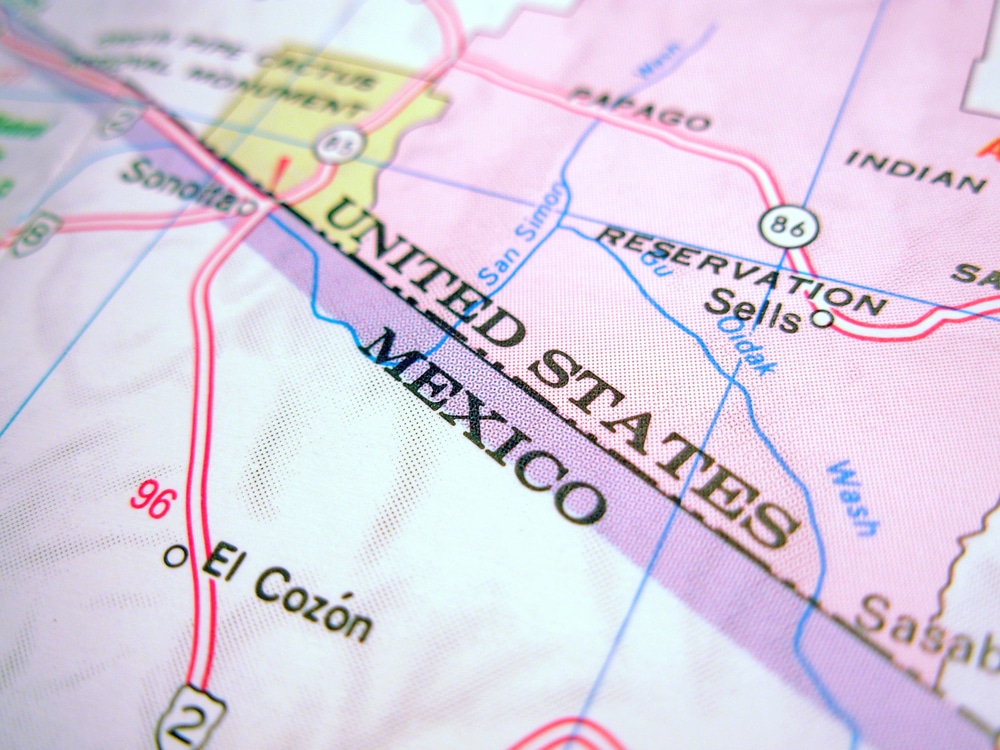Watching the Republican Party presidential debates has been surreal in many ways. Apart from the awkward spectacle of Mike Pence and Chris Christie acting like they have a chance at the Oval Office, perhaps nothing has been more confounding than the new, hottest idea: bombing and invading Mexico to solve the drug crisis. And it gets better! Because while they’re at it, the military will solve the migrant crisis, too.
This really is baffling.
Except for those monied interests who benefit from its continued fighting, the drug war has been a total failure. Pick any metric you like.
So, too, but for those monied interests who benefit from its continued fighting, the Global War on Terror has been a failure on all fronts. Again, pick any metric you like.
So why would a war on “narco-terrorism” be expected to go any differently?
I mean really, taking a step back, does the fact that so many of the migrants are now Venezuelan not strike these Republicans or their voters as in any way odd? No more than the fact that so many of the same migrants headed north thirty years ago were Guatemalan and Salvadoran.
Nor that efforts by each of the previous administrations at intervention and influence operations in Latin America (Honduras in 2009, Bolivia in 2019, or Venezuela in 2020) have all been failures.
It really is strange. One would think that a policy that generated such obvious negative consequences would have surely been abandoned. But it hasn’t. And just as destroying the Middle East and destabilizing North Africa led to the migrant crisis Europe is still enduring, Washington’s focus on isolating and impoverishing an already populous and poor country like Venezuela has prompted many of them to pack up and leave
Yes, very shocking news: trying to make the civilian population of another state so miserable they choose to try and overthrow the regime doesn’t work.
Geez, if only Washington had known that from repeatedly trying it before…like in Iraq…or Iran…or Cuba…
Look, if people want to come to the United States, let them. But let’s not pretend that is everyone’s automatic first choice. People have attachments to the places they are from that go beyond material calculations. What weighs even more heavily in such calculations, however, is whether or not by staying in their home country they believe they or their loved ones are likely to starve or be murdered by a death squad of one kind or another.
These, sadly, constitute some of the most common outcomes of U.S. attention. From Guatemala to Honduras, El Salvador to Nicaragua, Haiti to Cuba, Mexico to the Dominican, Brazil to Chile, Washington has brought little but ill to its neighbors by its overt and covert interventions.
Washington should try being a really “good neighbor” and minding its own business.
After all, what vital interests are in danger that need defending in Latin America? What threat exists that additional bouts of Washington’s belligerence will cause it to cease? How many more tens of thousands must needlessly die over the question of what kind of government Latin America’s eleventh largest economy has?
In truth, nothing is to be gained by the American people from Washington’s further interference in the southerly part of the western hemisphere. Its interventions generate only instability and anti-American sentiment, fostering the conditions for criminality to thrive.
That what we see now is blowback from Washington’s failed Latin American policies should be obvious, even if how specifically to begin addressing its effects domestically aren’t.
Broadly speaking, however, quitting interventionism and prohibitionism is a must: for the concentrated benefits these policies hold for a relative few cannot outweigh the gross, diffuse costs borne by common people everywhere because of them.

































